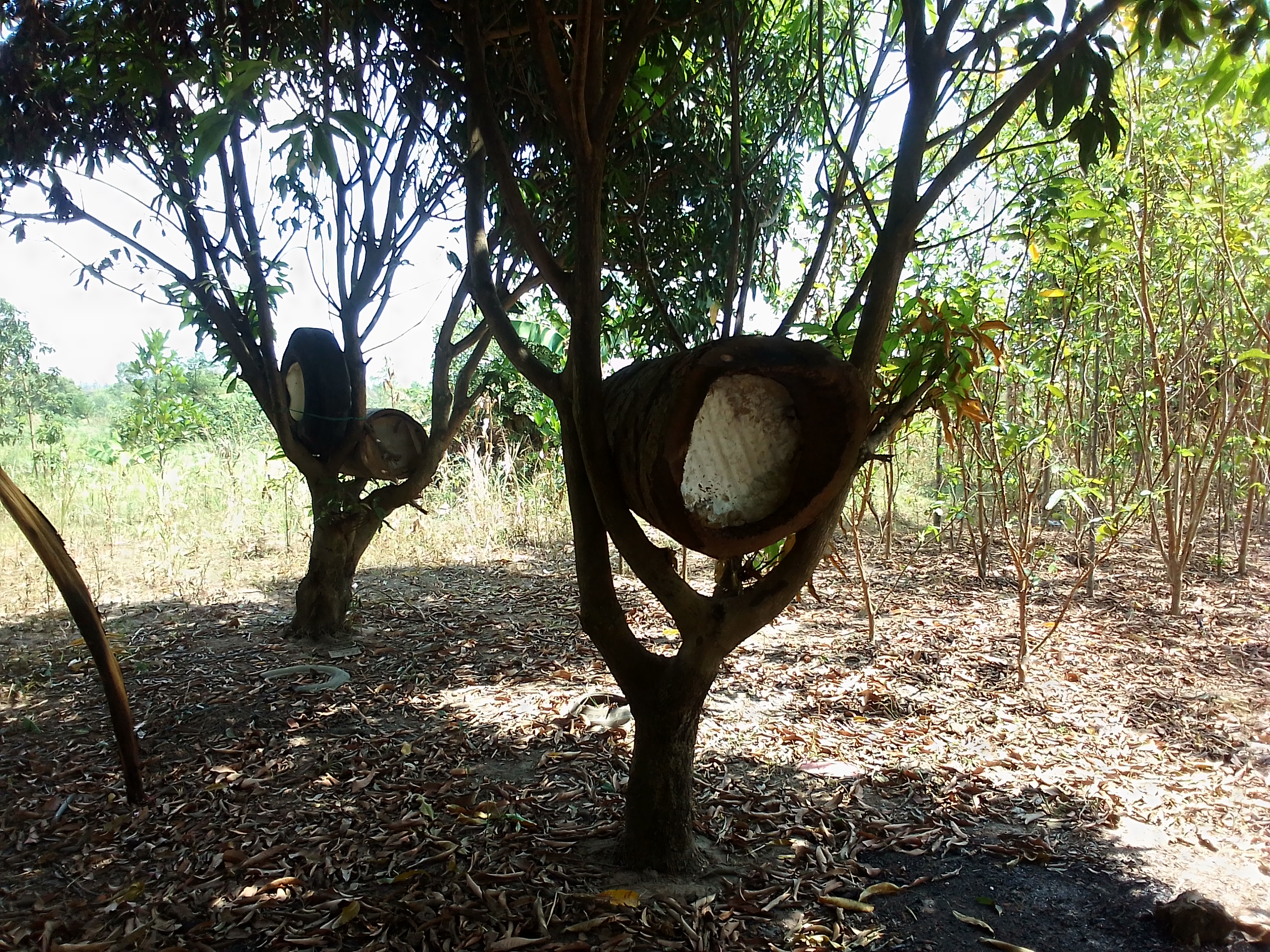GULU-Bee farmers in Gulu district have been urged to embrace climate-smart agriculture [CSA] to mitigate the current effects of climate change and environmental degradation due to tree cutting.
CSA is an integrated approach to managing landscapes like cropland, livestock, forests, and fisheries that addresses the interlinked challenges of food security and accelerating climate change
Alphonse Acaye, the Gulu district entomology officer said that CSA includes supplementing feeding for the bees and diversifying into other enterprises.
“A bee farmer can bring water closer to the apiary during the dry season by filling buckets with sand, wetting the sand with water, and cover it. The bees will then suck it out. This will make the bees not move long distances in search of water,” he said.
Acaye explained that, “Sometimes bees move more than a kilometre away from the hive to access water. During the struggle to get water, they may not come back to the hive because they lose the scent of the queen bee and this in turn affects the quantity of honey.”
Reports from the district production office indicate that some farmers did not harvest honey in 2022 because of the extreme weather conditions where the rainy season was too heavy while the dry season was prolonged.
The entomology officer said that data collected showed that less than 10 tons of honey was harvested in 2022 by over 600 bee farmers compared to 30 tons of honey harvested in 2016 by about 450 bee farmers.
“We had hoped that the amount of honey being harvested would increase because of the increasing number of bee farmers and availability of extension services but sadly, the amount of honey has only reduced,” Acaye said, advising farmers to diversify into other farming activities.
“You don’t need to take run just one enterprise. You can engage in fish, crop farming, livestock, or poultry so that if one fails, you can depend on the other,” he said.
Michael Okeny, a bee farmer in Laroo-Pece Division Gulu City told this reporter that he still harvests honey twice a year because of the conducive environment he has built for the bees.
“I planted fruit trees like mangoes, jackfruits, guavas, and avocadoes, which are useful for the bees. I also harvest these fruits and sell to retailers,” Okeny said, adding that the fruits supplement his income. Okeny has 112 bee hives.
Abalo Jennifer Oloya, a bee farmer in For God Parish, Gulu City who has also made it a point not to cut down trees near her apiary, said, unlike other agricultural enterprises, bee farming is not time-consuming and is less costly.
“There are no losses in bee farming like it is in growing crops. My apiary is near the compound,” Abalo said.
https://thecooperator.news/lira-beekeepers-form-cooperative-to-boost-honey-production/
Buy your copy of thecooperator magazine from one of our country-wide vending points or an e-copy on emag.thecooperator.news
